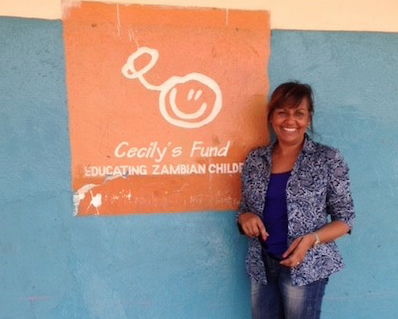The coronavirus pandemic poses a ‘moment of truth’ for many purpose-led corporate partnerships as some leading businesses showcase failures in their reaction to the crisis, advisers have warned.
Senior leaders from across the charity and corporate sectors have said how leading businesses respond to coronavirus crisis through their partnerships with charities represents a ‘moment of truth for stakeholder activism’.
The comments were made in a series of virtual roundtable discussions held by advisory firm C&E Advisory, which were attended by firms and charities including British Red Cross, Save the Children, Tesco, UNICEF, Warner Bros, WWF , Boots and more.
Participants said the pandemic has been an ‘acid test for stakeholder capitalism’, revealing that some leading businesses are ‘clearly failing this test’, whilst others demonstrate ‘extraordinary leadership in their responses to the virus’.
The comments come at a pivotal time for charities, as the sector faces its biggest financial challenges since the recession. Sector leaders have predicted the sector will see over £4bn wiped from its income during the next three months.
The roundtable discussions highlighted that the stresses of resource constraints mean many charities are facing an ‘existential threat’ and are being forced into having to ‘completely redesign their business models’.
Amid the pandemic, companies are also being pushed into making ‘rapid decisions’ about whether to maintain their existing partnerships, and if so, how to adapt their existing commitments to their charity partners, the discussions revealed.
Furthermore, participants said repurposing is a key issue as companies and charities redeploy resources from previously committed thematic areas to issues and themes where the need is more.
C&E Advisory CEO, Manny Amadi said there have been ‘strikingly divergent’ approaches in how businesses are responding to Covid-19.
“Recent years have seen much talk of a shift towards purposeful business and brands, and stakeholder capitalism. Some wondered whether this was likely to amount to mere ‘woke-washing’ or a more fundamental change in how business does business,” he said.
“If the coronavirus represents an acid test for stakeholder capitalism, as some have said, then we are witnessing failures and successes of that test by some leading businesses. Companies that are truly purposeful are, in maintaining or adapting their partnerships with non-profits, demonstrating their commitment to their values.”
Latest News
-
Volunteering rates rise but remain below pre-pandemic levels
-
Charities reducing their visibility amid ‘climate of fear’
-
Friday funding roundup - 12 December
-
Charity workers face threats of death and sexual assault, regulator's interim chair warns
-
Louise Dawtry: Transforming nonprofit culture
-
Charities welcome £500m investment in youth services
Charity Times video Q&A: In conversation with Hilda Hayo, CEO of Dementia UK
Charity Times editor, Lauren Weymouth, is joined by Dementia UK CEO, Hilda Hayo to discuss why the charity receives such high workplace satisfaction results, what a positive working culture looks like and the importance of lived experience among staff. The pair talk about challenges facing the charity, the impact felt by the pandemic and how it's striving to overcome obstacles and continue to be a highly impactful organisation for anybody affected by dementia.
Charity Times Awards 2023
Mitigating risk and reducing claims

The cost-of-living crisis is impacting charities in a number of ways, including the risks they take. Endsleigh Insurance’s* senior risk management consultant Scott Crichton joins Charity Times to discuss the ramifications of prioritising certain types of risk over others, the financial implications risk can have if not managed properly, and tips for charities to help manage those risks.
* Coming soon… Howden, the new name for Endsleigh.
* Coming soon… Howden, the new name for Endsleigh.
Better Society

© 2021 Perspective Publishing Privacy & Cookies










Recent Stories